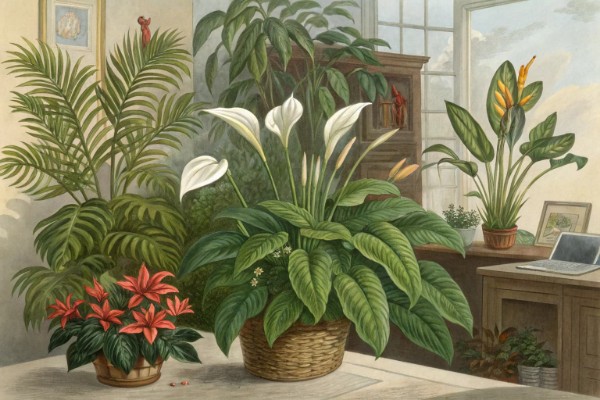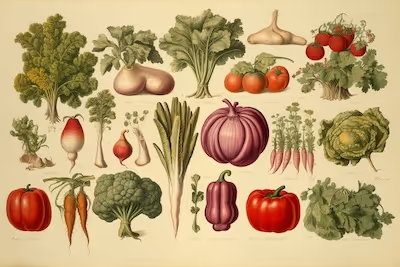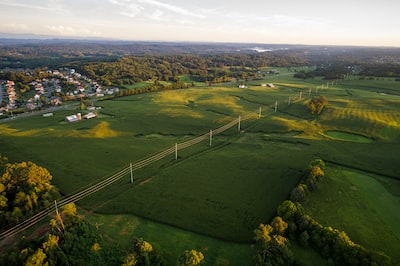Homesteading: Living Simply and Sustainably Off the Land
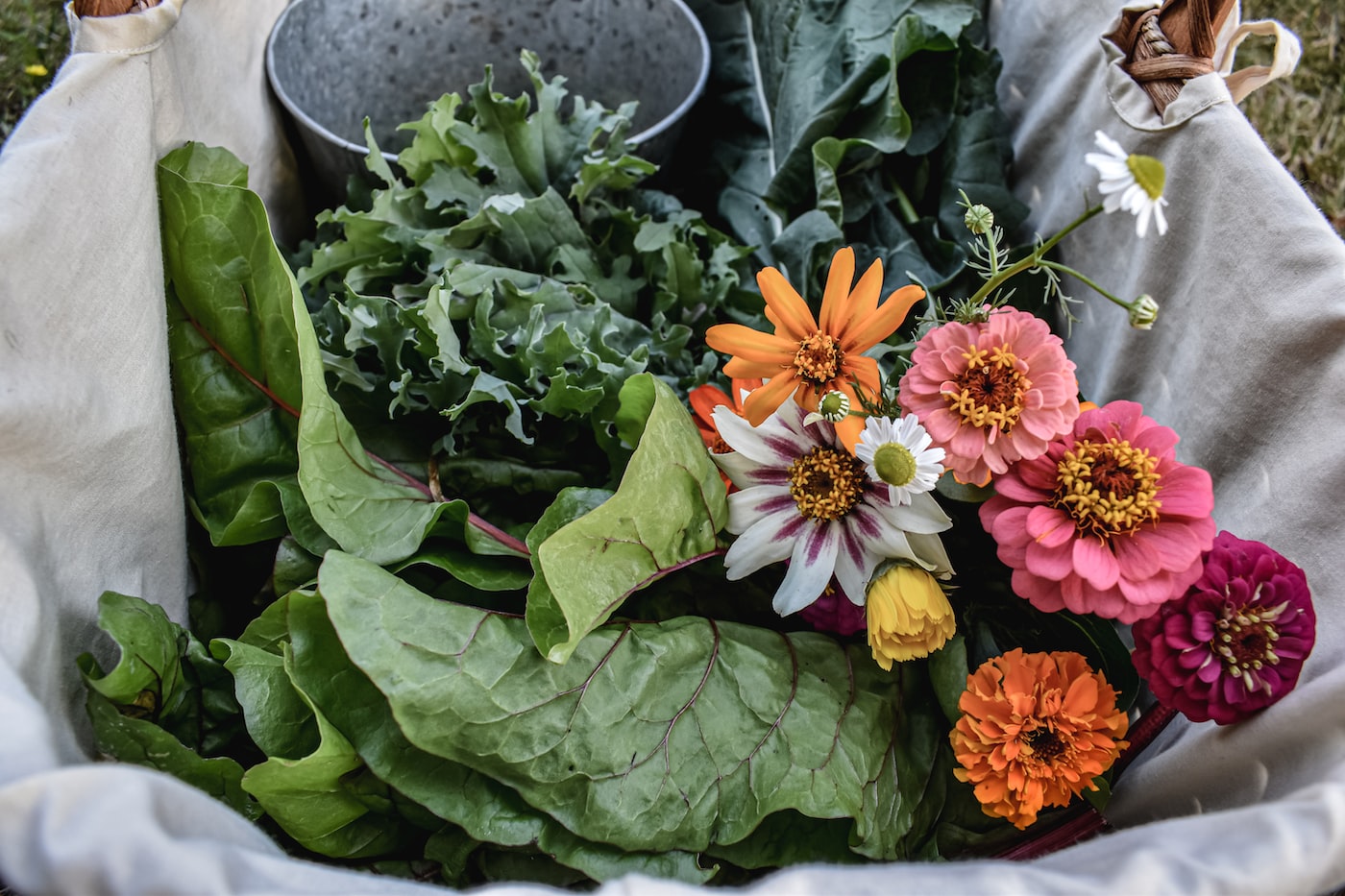
Homesteading
Homesteading blends self-reliant living, gardening, and sustainable practices into everyday routines anyone can adopt. Growing your own produce, raising animals, and preserving harvests are foundations of the homesteading lifestyle. Discover how cultivating this rewarding approach puts fresh, organic bounty onto your table and independence back into your life.
Cheatsheet: Simple, Sustainable Homestead Living
🌱 Grow Food Year-Round
- Plan using crop rotation for soil health.
- Start seeds indoors late winter (65°F/18°C+).
- Plant staples: Potatoes, beans, carrots, kale, tomatoes.
- Install raised beds or no-till rows to prevent compaction.
- Cover with mulch for moisture and weed control.
💧 Water & Soil Care
- Compost food scraps and yard waste for nutrient-rich soil.
- Collect rainwater—1 inch (2.5 cm) of rain on 1,000 sq ft yields 623 gallons (2,360 L).
- Use drip irrigation for efficiency and root health.
🍳 Raise Micro-Livestock
- Chickens: 3 hens = 600+ eggs/year, compost manure, eat scraps.
- Bees: Pollinate crops, yield honey (20-60 lbs/9-27 kg per hive).
- Rabbits: Lean meat (~6 lbs/2.7 kg per doe/month), enrich compost.
🔋 Capture Energy & Waste
- Install solar panels for off-grid power.
- Use passive solar for heating/cooling.
- Recycle greywater for garden irrigation, where legal.
🥕 Preserve Surplus
- Canning vegetables, fruit, broths (boil 10 min at 240°F/116°C).
- Drying herbs, fruit at 95–115°F (35–46°C).
- Fermenting (sauerkraut, pickles) for gut health.
🪓 Tools and Products You'll Need
- Broadfork, spade, hand trowel, pruners
- Compost bins, rain barrels, drip hoses
- Solar charger, food dehydrator, canning set
- Coop, beehive, rabbit hutch
- Work gloves, boots, wheelbarrow
🌻 Health, Nutrition & Self-Sufficiency
Homegrown food slashes grocery bills, reduces pesticide exposure, boosts minerals & vitamins. Physical work increases strength, lifts mood. Self-reliance rises: 2,500 sq ft (232 m²) garden can feed a family of four.
What Is Homesteading, Exactly?
The first time I heard the term homesteading, it conjured images of pioneers in handmade clothes, plowing fields with horse-drawn carts. Quaint, yes. Accurate? Only partially.
Today, homesteading describes a lifestyle where self-sufficiency and sustainability drive how we garden, grow, cook, and even live.
The Essence of Homesteading: Self-Sufficiency and Sustainability
At its core, homesteading means producing rather than merely consuming. Growing vegetables, raising chickens, preserving food—these all weave together into a self-reliant way of life.
The joy of harvesting heirloom tomatoes from my garden, sun still warming their skin, is rivaled only by opening jars of homemade preserves on snowy winter evenings.
How Modern Homesteading Differs
Forget the covered wagons. Though steeped in tradition, modern homesteading plays out in suburban yards, urban balconies, and tiny rural plots alike.
- Container gardening for apartment dwellers
- Backyard chicken coops in city limits
- Solar-powered garden sheds and tool storage
- Rainwater harvesting systems on rooftops
I once knew an urban gardener who transformed her Brooklyn rooftop into an edible paradise—blueberry bushes thrived alongside herbs, peppers, even dwarf apple trees. Homesteading? Absolutely.
Why Gardeners Are Naturally Drawn to Homesteading
Gardening primes us for this lifestyle. The patience learned from nurturing seedlings transfers beautifully to other homesteading skills like fermentation or composting.
Did you know? Nearly 35% of American households now grow their own food in some form, a trend significantly boosted by interest in self-sustaining lifestyles.
Personally, fermenting sauerkraut from cabbage I nurtured from seed felt like alchemy—the simplest, oldest kind. Watching microbes transform vegetables into savory, gut-friendly food connected me deeply to nature’s processes.
Getting Started in Homesteading: Practical Steps
Here’s how I recommend dipping your toes into the soil-rich waters of homesteading:
- Start small: A raised vegetable bed or compact herb garden yields rewarding results without overwhelming commitment.
- Experiment with preservation: Freeze, pickle, or ferment excess produce, extending homegrown goodness into colder months.
- Raise chickens (if possible): Fresh eggs each morning transformed my breakfasts forever—hard to return to store-bought after that.
- Compost everything: Food waste becomes garden gold, fueling plants to lush productivity.
The Rewards—And Challenges—of Homesteading
I won’t sugarcoat it: homesteading requires sweat, patience, and sometimes stubborn persistence. The first time frost claimed my pumpkins earlier than expected, disappointment bit hard.
Yet, these moments teach humility and adaptability, virtues seasoned gardeners already know intimately.
In return, the independence, health benefits, and profound fulfillment in producing your own sustenance far outweigh temporary setbacks. There’s nothing quite like reaching into pantry shelves lined with jars of your garden’s bounty on an icy January evening.
"Nature loves courage. Make the commitment and nature will respond to that commitment by removing impossible obstacles." —Terence McKenna
Take this advice to heart, and your homestead garden will flourish in ways surprising, rewarding, and endlessly enriching.
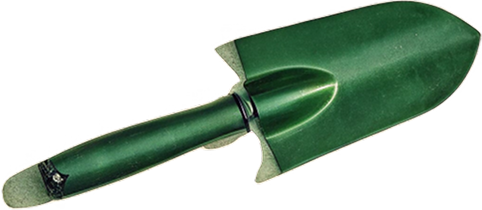
Want smarter plant choices? 🪴
Frequently Asked Questions About Homesteading
How much land is necessary to start homesteading?
The amount of land required depends on your self-sufficiency goals and available time. A small plot, even as little as half an acre (approximately 0.2 hectares), can support vegetable gardening, herb cultivation, and chickens. However, larger livestock or extensive crops may require multiple acres (hectares).
Which crops are ideal for beginners?
Easy-to-grow plants like tomatoes, lettuce, carrots, zucchini, beans, and herbs such as basil and rosemary offer excellent starting points. These crops yield abundant harvests even under moderate care, boosting confidence and providing nutritious food for your household.
Can homesteading be profitable?
Yes, homesteading can generate income through selling excess produce, handcrafted goods, eggs, honey, or dairy products. Creating a thoughtful business plan and identifying local market demand can convert your homestead activities into a viable income source.
Do homesteaders need specialized equipment?
Basic gardening tools such as spades, hoes, wheelbarrows, and pruning shears suffice for small-scale gardens. As homesteads expand to include livestock or large crop plots, additional equipment like tractors, fencing, or irrigation systems may become necessary.
How do homesteaders manage pest control organically?
Homesteaders often rely on natural, chemical-free methods such as crop rotation, companion planting, beneficial insects like ladybugs, and homemade sprays made from garlic, neem oil, or soap solutions. These practices encourage a healthy ecosystem and reduce reliance on commercial pesticides.
What animals are suitable for small-scale homesteading?
For limited spaces, consider animals that require minimal land and upkeep. Chickens provide eggs and pest control, rabbits can supply manure and wool, and goats yield milk and cheese. Bees are another beneficial and compact addition, producing honey and improving pollination.
How much time commitment does homesteading demand?
The required time depends significantly on your specific homestead's size and complexity. Typically, expect daily chores involving gardening, animal care, and maintenance. Even a small-scale homestead may need around 1–2 hours daily, while larger operations could require full-time attention.
Are there zoning regulations or laws related to homesteading?
Yes, local zoning laws and regulations vary significantly by region. Always research your area's zoning rules and ordinances regarding livestock, gardening structures, and home-based selling activities. Checking with local authorities ensures compliance and avoids future challenges.
Homesteading strips life down to its essentials—fresh food, honest labor, and a respect for the land. The reward is real: tomatoes still warm from the sun, eggs with yolks like melted gold, and a sense of self-reliance you can’t buy at the store. It’s patience and dirty hands, but also the quiet pride that comes from building something lasting. If you’re ready for less noise and more meaning, starting with a plot of land—maybe even buying farmland—is a good place to begin. Homesteading won’t make life perfect, but it will make it yours.
The Prepper's Guide to Homesteading: Essential Skills and Strategies
Food Security Essentials
- Root Cellaring: Build underground storage (optimal temp: 32-40°F / 0-4°C, humidity: 85-95%) to preserve produce year-round.
- Seed Saving: Choose heirloom crops (beans, tomatoes, squash) for reliable annual yields and genetic resilience.
- Perennial Food Plants: Plant hardy perennials like asparagus, berry bushes, fruit and nut trees for consistent food with minimal annual input.
Water Independence Tactics
- Rain Catchment: Install metal roof-based systems with food-grade storage tanks (minimum 500 gallons / 1,900 liters per household member yearly).
- Hand-Pumped Well: Include manual pumps (effective depth 150-200 feet / 45-60 meters) for reliable, electricity-free water sourcing.
- Greywater Recycling: Set up simple filtration and reuse systems (sink and shower water) for irrigation and non-potable needs.
Energy Self-Sufficiency Methods
- Wood Stove Heating: Install efficient wood-burning stoves with cooktop surfaces; seasoned hardwood (oak, maple) stores energy at 15-20 million BTUs per cord.
- Solar Power Backup: Select portable photovoltaic arrays (200-400 watt rating) paired with lithium-ion batteries for off-grid electricity.
- Passive Solar Design: Orient homestead structures southward (northern hemisphere) and incorporate thermal mass (brick, stone) to naturally regulate indoor temperature.
Health and Hygiene Preparedness
- Medicinal Herb Cultivation: Grow high-value medicinal herbs (echinacea for immunity, calendula for skin healing, chamomile for stress relief).
- Sanitation Solutions: Construct composting toilets to safely process human waste without water dependence, converting waste to usable compost (6-12 months composting time).
- Natural Pest Management: Integrate companion planting (marigolds near tomatoes) and encourage beneficial predator insects (ladybugs, praying mantis) to manage pests sustainably.
Community and Defense Planning
- Community Trade Networks: Form trade relationships with nearby homesteaders to exchange excess produce, livestock or skills.
- Security Measures: Implement perimeter barriers (natural hedgerows, sturdy fencing), alarm animals (geese, guineafowl), and strategic lighting to deter intrusions.
- Communication Channels: Maintain off-grid communication options (ham radios, solar-rechargeable walkie-talkies) for emergencies.
Find out which plants will thrive in your garden!
Answer a few fun questions and get custom plant recommendations perfect for your space. Let’s grow something amazing together!

start your season

